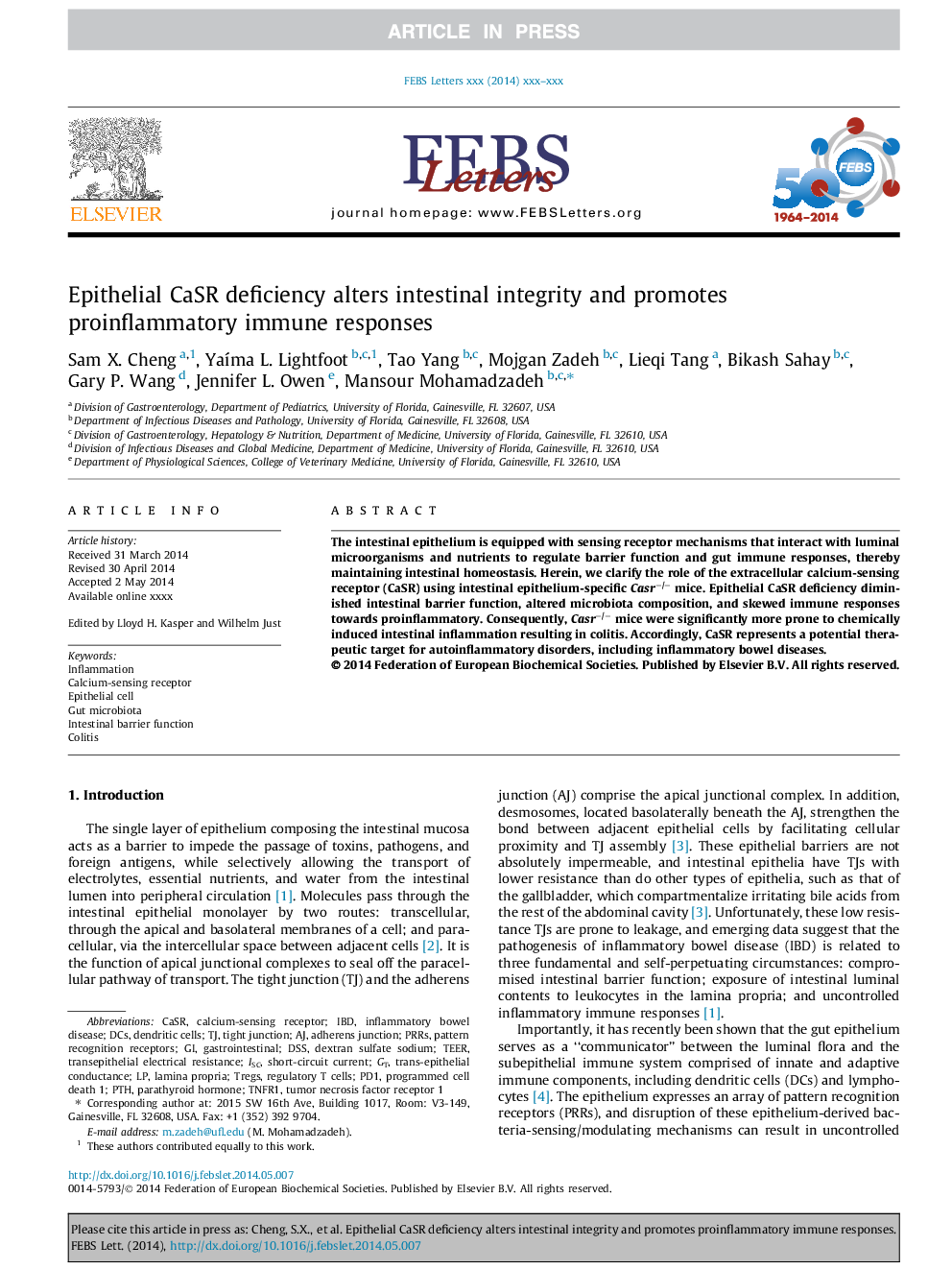| Article ID | Journal | Published Year | Pages | File Type |
|---|---|---|---|---|
| 10870120 | FEBS Letters | 2014 | 9 Pages |
Abstract
The intestinal epithelium is equipped with sensing receptor mechanisms that interact with luminal microorganisms and nutrients to regulate barrier function and gut immune responses, thereby maintaining intestinal homeostasis. Herein, we clarify the role of the extracellular calcium-sensing receptor (CaSR) using intestinal epithelium-specific Casrâ/â mice. Epithelial CaSR deficiency diminished intestinal barrier function, altered microbiota composition, and skewed immune responses towards proinflammatory. Consequently, Casrâ/â mice were significantly more prone to chemically induced intestinal inflammation resulting in colitis. Accordingly, CaSR represents a potential therapeutic target for autoinflammatory disorders, including inflammatory bowel diseases.
Keywords
ISCpTHTregsCaSRTEERDCsTNFR1IBDDSSPRRsPD1Tight junctionColitisinflammationInflammatory bowel diseaseGastrointestinalepithelial cellDendritic cellsRegulatory T cellsDextran sulfate sodiumIntestinal barrier functionLamina propriaShort-circuit currentprogrammed cell death 1transepithelial electrical resistanceGut microbiotaparathyroid hormoneAdherens junctionCalcium-sensing receptortumor necrosis factor receptor 1pattern recognition receptors
Related Topics
Life Sciences
Agricultural and Biological Sciences
Plant Science
Authors
Sam X. Cheng, YaÃma L. Lightfoot, Tao Yang, Mojgan Zadeh, Lieqi Tang, Bikash Sahay, Gary P. Wang, Jennifer L. Owen, Mansour Mohamadzadeh,
